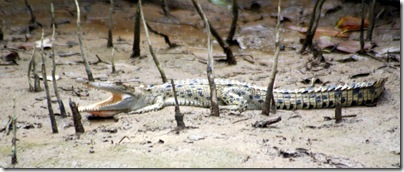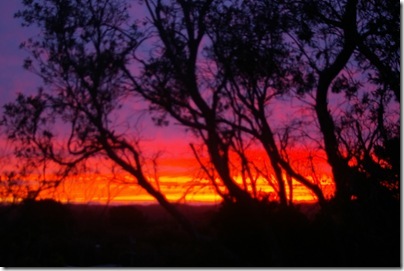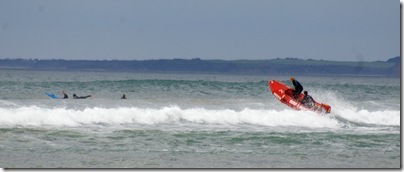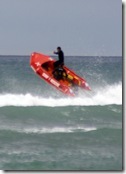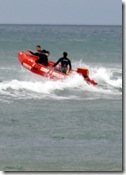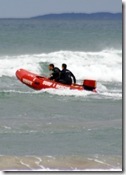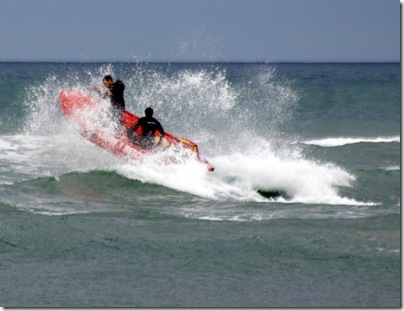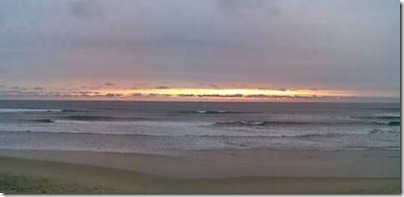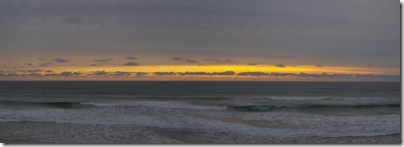Friday, November 30, 2007
2nd last spring sunset
Saturday, November 17, 2007
More on Sky
Before
After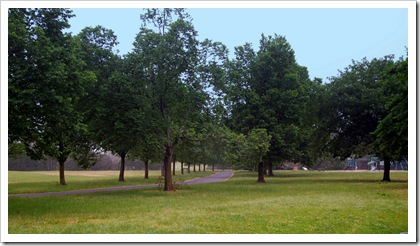
I have mentioned this "trick" before. Most digital cameras end up having a dilemma when trying to find the perfect exposure during the middle of the day. If you point at something like a tree, the exposure will be fine for everything on the ground and the trees but the sky will be washed out. The simplest way to add a nice blue sky back into your photo is using a simple gradient filter, specifically one that allows you control the position and rate of the gradient (sometimes called feathering). Here I am using the gradient filtering feature in picasa.
Saturday, November 10, 2007
Thursday, November 08, 2007
Now that is a good idea
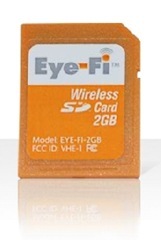 I came across this researching something else, but who is this for a snazzy idea, putting a wi-fi transmitter into a camera's SD memory card. It is called an Eye-Fi. There is a bit of set up required on your PC or Mac to configure it, but after that you can upload your photos from the camera wirelessly, and in can be automatically setup to also upload your photo to your favourite website, like flickr, photobucket, even facebook. At present they don't work with public wi-fi hot spots (they can't log in by themselves). And yes the camera battery will be used when the card is transmitting. The other bad news is the Eye-Fi is only supported in USA (but hopefully that will change)
I came across this researching something else, but who is this for a snazzy idea, putting a wi-fi transmitter into a camera's SD memory card. It is called an Eye-Fi. There is a bit of set up required on your PC or Mac to configure it, but after that you can upload your photos from the camera wirelessly, and in can be automatically setup to also upload your photo to your favourite website, like flickr, photobucket, even facebook. At present they don't work with public wi-fi hot spots (they can't log in by themselves). And yes the camera battery will be used when the card is transmitting. The other bad news is the Eye-Fi is only supported in USA (but hopefully that will change)
Tuesday, November 06, 2007
No filters needed
I recently sold a number of my sunset photos at a local Art Exhibition and so many people asked if I used some special filter or photoshop process. The answer is I used neither.
My secret to getting good photos at sunset is firstly be there, at the right time. The best colours often come just after the sun has set. Secondly, and less importantly, is don't be afraid to take several at slightly different setting (for example use EV bracketing). Built-in light meters and their monitoring techniques behave quiet differently between digital cameras when being pointed at a strong light sources.
Sunsets (and sunrises) are a favourite topic of mine, to see other posting on them click on the label sunset below
Getting the sky
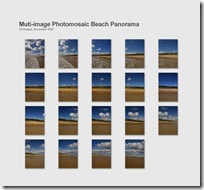 I am actually rather proud of this panorama, I hope to generate a 2m long blow up. It is based on 19 individual images and was stitched into a single with autostitch. However that is the easy bit, getting 19 images to look as if they are correctly exposed out in the middle of a late spring afternoon in Australia is the real challenge. Normally because the Australian midday lighting is so harsh, if the beach is correctly exposed the sky would be washed out (most automatic light meters will do this) or if the sky was nice and blue the beach would look dark. So I have used a polarizing filter, its effect on the beach is minimal but it changes the contrast in the sky and clouds beautifully.
I am actually rather proud of this panorama, I hope to generate a 2m long blow up. It is based on 19 individual images and was stitched into a single with autostitch. However that is the easy bit, getting 19 images to look as if they are correctly exposed out in the middle of a late spring afternoon in Australia is the real challenge. Normally because the Australian midday lighting is so harsh, if the beach is correctly exposed the sky would be washed out (most automatic light meters will do this) or if the sky was nice and blue the beach would look dark. So I have used a polarizing filter, its effect on the beach is minimal but it changes the contrast in the sky and clouds beautifully.
Saturday, November 03, 2007
Friday, November 02, 2007
Tale of Two Panos
It was a pretty magnificent sunset tonight down here, perfect opportunity to compare my new phones autopano feature which I am having a bit of trouble mastering, with multi-image autostitching (my preferred method, but much more time consuming)
Whilst there is not that much difference at the "thumbnail" size displayed here, if you click on the images to see them full size, the difference is astounding.
